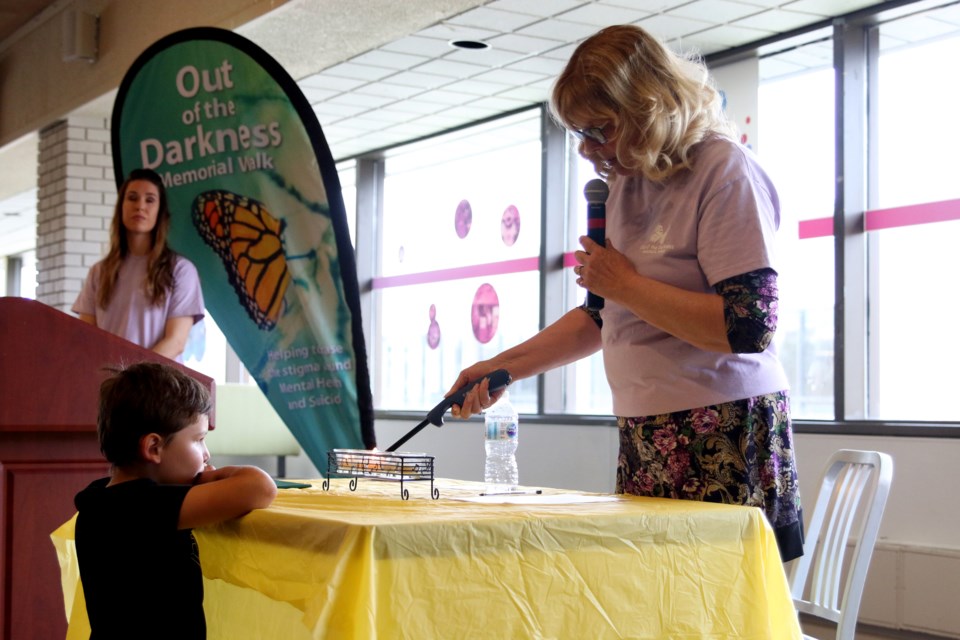THUNDER BAY - Margaret Hajdinjak said when someone dies by suicide, the pain is not gone, it is just transferred to other people. Those people who must not be afraid to talk about it, because having that conversation, being open about that pain, can prevent it from happening to someone else.
“Suicide touches so many different people in so many different ways that people think they are alone, but they are not,” Hajdinjak said. “We want to help erase the stigma around that and get people talking about depression.”
Erasing the stigma and remembering those lost to suicide is why Hajdinjak started the Out of Darkness Memorial Walk nine years ago following the death of her son Steven, who took his own life in 2005.
On Sunday, more than 150 people gathered for the walk at Confederation College, which included the memorial wall where people posted names and photos of people lost to suicide.
“It gets people talking about it,” Hajdinjak said. “You are talking about it, you are trying to erase some of the stigma. Grief can be a really lonely thing. When you tell somebody you lost your child to suicide, it’s like they shut down. They don’t know what to say. We are trying to erase that so it’s okay to talk about it.”
The memorial wall was the idea of Rose Zuliani, who has been volunteering with the Out of Darkness Memorial Walk for the past eight years. She recognizes it is a very emotional experience for people to not only share the names of their loved ones, but to see so many others who have been lost as well.
“The wall in itself recognizes that person, validates your own feelings as well, and you have something in common with everyone here,” she said.
Zuliani recalled a very difficult time two years ago when a young girl posted the names of four of her brothers to the memorial wall.
“For people to put the picture up there with the name and I love you and the little butterfly and I remember you, that’s important,” she said. “People tend to dismiss people who have died by suicide, so that validates that person’s life.”
Zuliani said it is difficult to see her mother’s picture on the memorial wall, even if it’s been more than 40 years since her death in 1975 when Zuliani was just 19-years-old.
“She was my best friend so to lose her, it’s still hard to talk about,” Zuliani said. “I’m not even sure how to describe it. You are aware there is an issue and you are hoping it’s going to go away. Being young, suicide was taboo 42 years ago, so you just hope everything is going to get better, but it didn’t.”
Zuliani’s first husband also took his own life many years ago after they were separated and while it was not something that was talked about 40, 30, or even 10 years ago, the conversation has started and it is getting louder.
“That’s where now, where we talk about it, communicate with each other, put out there, maybe that could have been prevented,” she said.
And while remembering those lost to suicide is important to help people through their grief, it is that pain and those conversations that can also help someone living with a mental illness avoid what Zuliani said is not a selfish act, but rather an act of desperation.
“They are not doing this just to create a problem, they are doing it because they can’t cope with things,” she said. “It’s like a walking wounded type of thing. Someone has a fracture or is in cast, you can see they are injured, but if it’s a mental health issue people tend to dismiss it. I think if we can share it with each other, our stories, we may be able to recognize it in somebody else.”
“I think if someone is really feeling depressed and down and they do come, they see the impact that it leaves behind,” Hajdinjak added. “One person takes their life, but they probably affected 20 people’s lives or more when that happens and what do you do with the survivors.”
